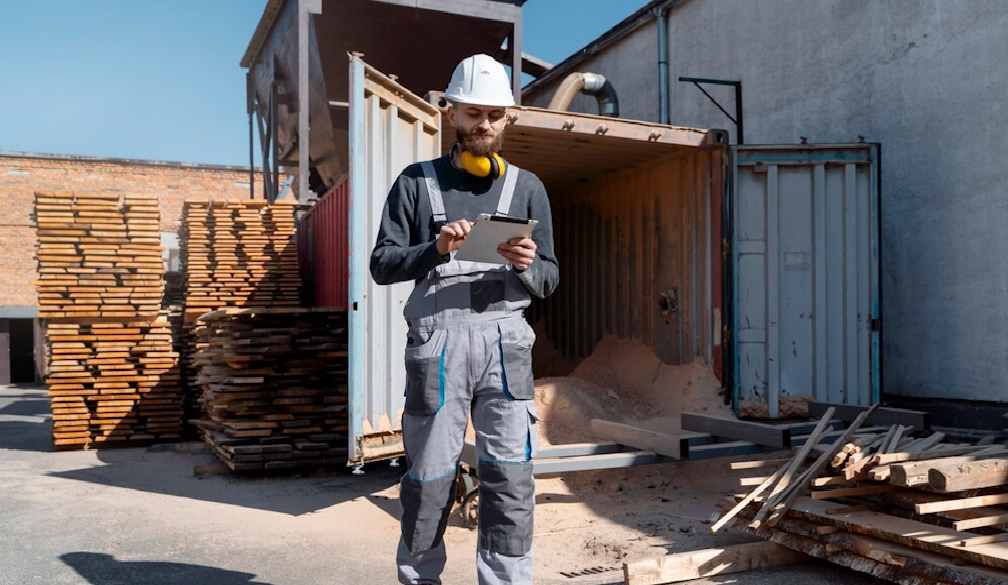Starting Your Business From the Ground Up: Materials to Use During Commercial Construction

Commercial construction projects require careful consideration of various building materials to ensure durability, sustainability, and cost-effectiveness. Selecting the right materials can significantly impact the longevity and efficiency of commercial properties. Here are some tips to consider.
Durable Building Materials
When it comes to durability in commercial construction, concrete stands out as a premier choice. Its widespread use is due to its strength, longevity, and versatility. In fact, concrete is the second-most consumed substance in the world. Reinforced with steel, concrete structures can withstand significant wear and tear, making them suitable for high-traffic commercial areas.
Another highly durable material is steel, often used for framing and structural support. Steel is not only strong but also resistant to pests and fire, contributing to the overall safety and integrity of commercial buildings. Innovations in steel production have further enhanced its durability, making it a top choice for long-term investments.
Bricks and masonry are also favored for their durability and aesthetic appeal. Used in conjunction with other materials, brickwork can add both strength and charm to commercial properties. Masonry walls are known for their robustness and ability to provide excellent thermal mass, contributing to energy efficiency.
Flooring Materials
Choosing the right flooring material for your business involves balancing practicality, durability, and aesthetic appeal. High-traffic areas like retail stores or office lobbies require materials that can endure constant use. For such areas, options like ceramic tiles, vinyl, and polished concrete are excellent for their resilience and easy maintenance.
Carpet tiles are another viable option, offering both acoustical benefits and design flexibility. They are especially suitable for office environments where noise reduction is crucial. Moreover, individual tiles can be replaced if damaged, providing a cost-effective solution over time.
Wood flooring, particularly engineered wood, offers a sophisticated look while providing considerable durability. It’s essential to choose commercial-grade wood flooring, which is designed to withstand more wear and tear than residential options. Additionally, a good finish can enhance its longevity and maintain its appearance.
Roofing Materials
The choice of roofing material for commercial buildings is critical for ensuring the structure's longevity and energy efficiency. Metal roofing is a popular choice, known for its durability, fire resistance, and energy efficiency. Modern metal roofing systems often come with reflective coatings that reduce heat absorption, lowering cooling costs for your business.
Built-up roofing (BUR) is another dependable option, consisting of multiple layers of asphalt and ply sheets. BUR systems are well-regarded for their waterproofing capabilities and long lifespan. They are particularly suitable for large commercial buildings where a strong, weather-resistant roof is essential.
Single-ply membranes, such as TPO and EPDM, offer flexibility and ease of installation. These materials provide excellent resistance to UV radiation and chemicals, making them suitable for commercial buildings exposed to harsh environmental conditions. Their lightweight nature also reduces the load on the building's structure.
Insulation and Energy Efficiency
Effective insulation is paramount for maintaining energy efficiency in commercial buildings. Materials like fiberglass, mineral wool, and spray foam provide robust thermal barriers that help regulate indoor temperatures. Proper insulation reduces the demand for heating and cooling, translating to significant cost savings for any business.
Energy-efficient windows are another vital component of a well-insulated commercial building. Double or triple-glazed windows with low-emissivity coatings can minimize heat loss and gain, enhancing the building’s overall efficiency. In addition, proper sealing around window frames is essential to prevent drafts and energy loss.
Implementing advanced HVAC systems can further enhance energy efficiency. Modern HVAC units are designed to optimize energy use while maintaining indoor air quality. Regular maintenance and updates to these systems ensure they operate at peak efficiency, helping businesses reduce their energy footprint.
Sustainable Building Materials
Sustainability is becoming increasingly important in commercial construction, leading to a growing focus on eco-friendly building materials. Bamboo is a sustainable choice, renowned for its rapid growth and renewability. As a flooring material, it offers durability and an attractive aesthetic while reducing the environmental impact of construction projects.
Recycled materials, such as reclaimed wood and recycled metal, provide sustainable options without compromising on quality. These materials often come with unique characteristics and historical value, adding a distinctive charm to commercial spaces. Utilizing recycled materials supports environmental conservation and reduces waste.
Natural stone, with three types including granite, marble, and limestone, is another sustainable option. These materials are long-lasting and have a minimal environmental impact compared to synthetic alternatives. The use of natural stone in commercial projects not only enhances durability but also aligns with sustainability goals, promoting eco-friendly construction practices.
It's also important to consider sustainability when starting the project in the first place. Keep in mind that pipelines less than 10 years old cause the most incidents. Therefore, it's crucial to think about where the construction will begin and end.
Selecting the right building materials is crucial for the success and longevity of commercial construction projects. By carefully considering these factors, businesses can create resilient and sustainable commercial properties that stand the test of time.







